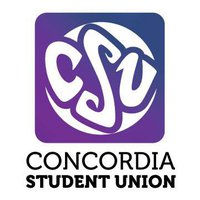Out of the 40 candidates running in the Concordia Student Union elections who were invited to an information meeting on the evening of March 4, only three showed up.
The meeting was organized by CSU chief electoral officer Ismail Holoubi in order to draw the boards’ space evenly among the candidates for their campaign posters and to inform them of the main rules to follow in the one-week campaigning period that starts on March 6. The two candidates running for CSU president, current CSU councillor Melanie Hotchkiss and Arts and Science Federation of Associations VP internal Schubert Laforest — who are each leading an affiliation of candidates running for executive positions — were not present.
“I met with the candidates once before this meeting,” said Holoubi. “Each one of them already had the chance to sit with me and express their questions and concerns when they delivered their applications, so everyone is informed about rules and bylaws. That’s probably why they didn’t show up.”
Holoubi made it clear that although campaign endorsements were legal, it could not be financial in any way as it would go against the elections’ fixed financial allowance to each candidate.
He also addressed the concern that some candidates could use their current offices to promote themselves or their affiliation during non-campaigning time. Holoubi said that “if I witness any violation or get any contestation, I will immediately ask candidates to step down from their current offices.”
The CEO and the deputy electoral officers decided to hold two debates, on Thursday, March 8 and on Thursday, March 15, that will see each candidate running for an executive position debate with his or her opponent.
The competition is not shaping out to be very fierce with 15 candidates running for the 14 Arts and Science council seats, three running for each of the three council seats available for Fine Arts and Engineering and Computer Science, and three candidates running for the six available seats for John Molson School of Business.
Affiliations running for the executive positions:
President
Melanie Hotchkiss Schubert Laforest
VP finance
Stephanie Beauregard Keny Toto
VP academic and advocacy
Chuck Wilson Lucia Gallardo
VP external affairs
Cameron Monagle Simon-Pierre Lauzon
VP clubs and internal affairs
Museb Abu-Thuraia Nadine Atallah
VP student life
Lina Saigol Alexis Suzuki
VP sustainability
Iain Meyer-Macaulay Andrew Roberts
VP Loyola
Jonathan Braziller Stefan Faina
